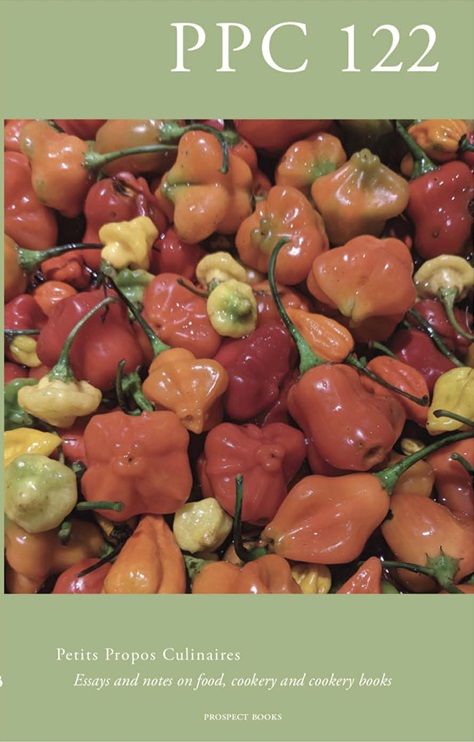‘The Alpha and the Omega’
Women’s Empowerment in Nineteenth-Century English Cookery and Conduct Books Written by Women
DOI:
https://doi.org/10.1558/ppc.27787Keywords:
19th-century, food and gender, female authorship, great britain, cookbook history, conduct books, empowerment, Eliza Action, Isabella Beeton, The Jewish Manuel, Judith Montefiore, literary genre, morality, self-representation, social history, female solidrity, Jewish cookeryAbstract
The author analyses two well-known cookery and conduct books published in England during the nineteenth century -- Modern Cookery by Eliza Acton, first published in 1845, and Mrs Beeton’s Book of Household Management by Isabella Beeton, published in 1861, as well as a themed book targeted at an ethnic minority, The Jewish Manual, edited anonymously by a woman but attributed to Lady Judith Montefiore and published in 1846 -- and argues that English cookery and conduct books written by women during the nineteenth-century challenged traditional gender and social boundaries and undermined women’s submissive image by presenting modes of women’s empowerment at personal and interpersonal levels.References
[A Lady, ed., probably Lady Judith Montefiore]. The Jewish Manual; or Practical Information in Jewish and Modern Cookery. London: T. & W. Boone, 1846.
Acton, Eliza. Modern Cookery in all its Branches: Reduced to a System of Easy Practice, for the Use of Private Families. London: Longman, Brown, Green and Longmans, 1845. By the 1855 edition, from Longman, Brown, Green, Longmans, and Roberts, the main title had been adjusted to Modern Cookery for Private Families.
[Anonymous, probably Lady Judith Montefiore]. Notes from a Private Journal of a Visit to Egypt and Palestine, By Way of Italy and the Mediterranean. London: Printed by Wertheimer, Lea & Co., 1885. Not published.
Beetham, Margaret. ‘Good Taste and Sweet Ordering: Dining with Mrs Beeton.’ Victorian Literature and Culture 36, no. 2 (2008): 391–406.
Beeton, Isabella. Mrs Beeton’s Book of Household Management. 1861. Facsimile reprint, London: Chancellor Press, 1987.
Bell, Currer (Charlotte Bronte). Villette. 1853. London: Smith, Elder & Co., 1889.
Clausen, Christopher. ‘How to Join the Middle Classes: With the Help of Dr. Smiles and Mrs. Beeton.’ The American Scholar 62, no. 3 (1993): 403–18.
Collingham, Lizzie. The Taste of Empire: How Britain’s Quest for Food Shaped the Modern World. New York: Basic Books, 2017.
Congreve, Mistress A.E. The One Maid Cookery Book. London: Herbert Jenkins, 1913.
Crawford, Mary and Rhoda Unger. Women and Gender. New York: McGraw-Hill Companies, 2004.
Fromer, Julie E. A Necessary Luxury: Tea in Victorian England. Ohio: Ohio University Press, 2008.
———. ‘‘Deeply Indebted to the Tea-Plant’: Representation of English National Identity in Victorian Histories of Tea.’ Victorian Literature and Culture 36, no. 2 (2008): 531–47.
Green, Abigail. ‘Spirituality, Tradition and Gender: Judith Montefiore, the Very Model of a Modern Jewish Woman.’ History of European Ideas 40, no. 6 (2014): 747–60.
Harner, Christina Henderson. ‘What do you mean by that? You must have been drinking!’ Victorian Femininity, Dickensian Cooking Disasters, and Nineteenth-Century Domestic Manuals.’ Dickens Studies Annual 51, no. 1 (2020): 123–48.
Heath, Mary E. ‘A Woman’s World: How Afternoon Tea Defined and Hindered Victorian Middle Class Women.’ Constructing the Past 13, no. 1 (2012): 1–11.
Huggins, Mike J. ‘More Sinful Pleasures? Leisure, Respectability and the Male Middle Classes in Victorian England.’ Journal of Social History 33, no. 3 (2000): 585–600.
Jordan, Ellen. ‘“Making Good Wives and Mothers”? The Transformation of Middle-Class Girls’ Education in Nineteenth-Century Britain.’ History of Education Quarterly 31, no. 4 (1991): 439–62.
Kent, Susan Kingsley. Sex & Suffrage in Britain 1860–1914. London: Routledge, 1995.
Lipman, Sonia L. ‘Judith Montefiore – First Lady of Anglo-Jewry.’ Transactions (Jewish Historical Society of England) 21 (1962–1967): 287–303.
Mason, Laura. Book of Afternoon Tea. Swindon: National Trust, 2018.
Rappaport, Erika. ‘Sacred and Useful Pleasures: The Temperance Tea Party and the Creation of Sober Consumer Culture in Early Industrial Britain.’ Journal of British Studies 52, no. 4 (2013): 990–1016.
Rich, Rachel. ‘Designing the Dinner Party: Advice on Dining and Décor in London and Paris, 1860–1914.’ Journal of Design History 16, no. 1 (2003): 49–61.
Senn, Charles Herman. The New Century Cookery Book: Practical Gastronomy and Recherché Cookery. London: Spottiswoode, 1901.
Sherman, Sandra. ‘The Politics of Taste in The Jewish Manual.’ Petits Propos Culinaires 71, no. 4 (2002): 72–94.
Spain, Nancy. The Beeton Story. London: Ward, Lock & Co., 1956.
Steinbach, Susie. Women in England 1760–1914, A Social History. London: Phoenix, 2005.
Vickery, Amanda. Behind Closed Doors, At Home in Georgian England. New Haven: Yale University Press, 2009.
———. ‘Golden Age to Separate Spheres? A Review of the Categories and Chronology of English Women’s History.’ The Historical Journal 36, no. 2 (1993): 383–414.

